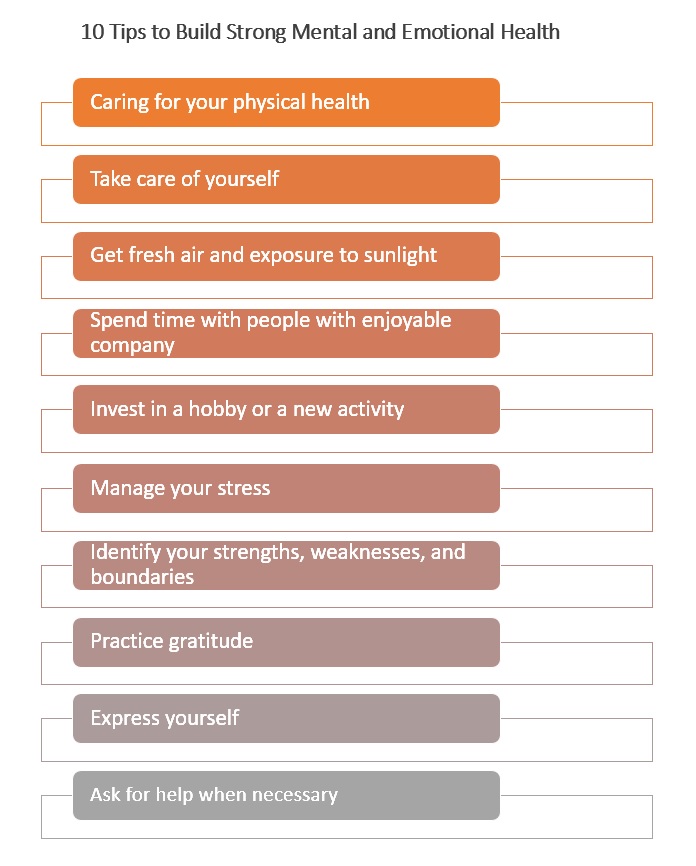10 Tips to Build Strong Mental and Emotional Health
1st October 2020
Mental and emotional health are indispensable and contribute significantly towards our physical wellbeing as well. Managing emotions and maintaining a balance are important skills worth mastering. When we learn to manage our emotional health, we find the strength to face challenges and stress. Lack of proper emotional regulation skills can often lead to poor mental health and difficulty in maintaining relationships and other life goals. Thus, it is essential to take care of our mental health as it is directly linked with and is imperative for our physical health as well.
In this blog, we will discuss a few habits that will uplift your mental and emotional health. Instilling these habits in learners from an early age will make them mentally and physically strong individuals. As an educator (working/aspiring), a school counsellor training will aid you to get an in-depth idea in helping students to balance their mental and emotional health.

1. Caring for your physical health
All we need for maintaining a healthy physical self is to eat well, get adequate rest, exercise properly and eat foods rich in vitamin B-12 and Omega 3 fatty acids to help keep up levels of mood-regulating chemicals in the brain.
2. Take care of yourself
Investing in self-care contributes to your mental and emotional wellbeing. Set time aside for yourself and listen to your own emotional needs. Indulge in things that improves your mental state.
3. Get fresh air and exposure to sunlight
Studies have shown that ample exposure to sunlight increases the production of serotonin, a chemical that regulates mood in the brain.
4. Spend time with people with enjoyable company
Spending time with people you love and get along with, provides a sense of being valued and appreciated.
5. Invest in a hobby or a new activity
Indulging in activities that you enjoy helps you stay engaged and in turn, happy. Learning new skill/s challenges you, increases your concentration levels and makes you feel good about learning something new.
6. Manage your stress
There are certain triggers that cause stress. Identify yours and try to avoid a stressful situation, but in unavoidable circumstances, find a way to cope with it.
7. Identify your strengths, weaknesses, and boundaries
your strengths and work on your weaknesses. Acknowledging your weaknesses is a key to your mental and emotional wellbeing.
8. Practice gratitude
Practicing gratitude for what you have, takes away the focus from what you don’t.
9. Express yourself
Unchecked emotions can be injurious to your mental health as you may, sometime, overlook emotions or feelings that you consider as ‘negative.’ Try to express what you’re feeling, your likes or dislikes as it can help you unclog your mind.
10. Ask for help when necessary
Whenever you feel upset, confused, angry or just simply overwhelmed and unable to cope, speak to someone you confide in - parent, sibling, relative, teacher or school counsellor if you think you need even more support.
Written By : Ipsita Roy